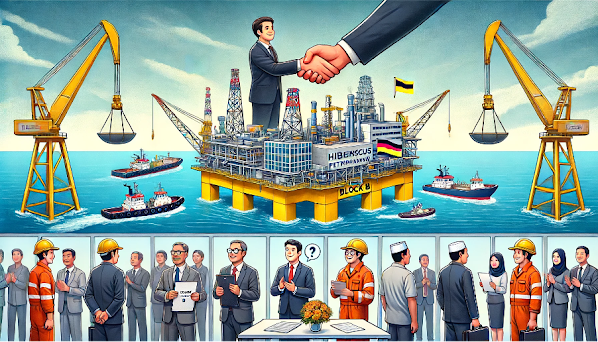As Brunei Darussalam celebrates 40 years of independence since 1984, it is essential to reflect on the nation's journey, especially regarding press freedom, independent media, and political institutions. The country has made significant progress, and ongoing discussions about journalistic freedom and its impact on transparency, accountability, and development are vital.
Press Freedom and Journalism in Brunei
Brunei's media landscape is primarily guided by the government. Major media outlets, including Radio Television Brunei (RTB) and the government-owned Pelita Brunei, along with privately-owned Borneo Bulletin and Media Permata, shape public perception. This careful management ensures a favorable public image and limits dissenting information. However, what does this mean for the average Bruneian? How does this management shape public perception and discourse?
Legal Framework and Media Environment
Brunei's legal framework includes the Sedition Act, the Undesirable Publications Act, and the Internal Security Act, which are designed to maintain social harmony and order. These laws, while ensuring stability, also encourage self-censorship among journalists and media outlets. Content critical of government policy or the royal family is often avoided. Can a nation truly progress without the free flow of ideas and constructive criticism?
Impact on Governance
An independent press serves as a valuable tool in promoting transparency and accountability in governance. The current media environment has led to the rise of social media platforms as alternative sources of information, which can sometimes spread rumors and misinformation. The absence of diverse information channels can impact public trust and the nation's reputation. How can citizens make informed decisions without access to unbiased and comprehensive information?
National Development Since Independence
Despite media restrictions, Brunei has achieved considerable progress since independence:
Economic Growth
Oil and gas revenues have underpinned the nation's high standard of living and extensive social welfare programs, reducing the need for international finance.
Infrastructure Development
Brunei boasts good infrastructure and has started diversifying its economic base by focusing on tourism, finance, and IT industry developments.
Education and Healthcare
Significant investments in education and healthcare have resulted in a more literate and healthier populace.
Challenges and the Road Ahead
Although Brunei has made significant achievements, governance and the role of media present challenges:
Political Reforms
The current centralized political system revolves around the Sultan, which can slow decision-making. By further democratizing the process and adopting more participatory governance, policies would better represent public needs. Are we ready to embrace a more participatory form of governance that includes diverse voices and opinions?
Strengthening Journalistic Freedom
Legal reforms are essential to ensure the rights of journalists. Independent media outlets and regulatory bodies would encourage diversity on issues and more thorough reporting. How might Brunei benefit from a media landscape that holds the power to account for and champions the truth?
Media Literacy and Public Engagement
Media literacy campaigns can decrease the impact of misinformation. The government should also release relevant information promptly through official channels. What steps can we take to ensure that the public is well-informed and media-savvy?
Political System and Power Sharing
Brunei is an absolute monarchy, meaning the Sultan has near-total control over the country. Major political reforms are unlikely without his endorsement. Political parties are restricted, and the concept of the Malay Islamic Monarchy (MIB) reinforces the status quo. What would a more inclusive political system look like, and how might it serve the people of Brunei better?
Enhancing Press Freedom and Development
Legal Reforms
Consider amending or repealing restrictive laws and establishing protections for journalists.
Strong Media Institutions
Set up independent regulatory bodies and support independent media houses.
Capacity Building for Journalists
Organize training for journalists and offer legal aid.
Political and Governance Reforms
Increase democratization, institutionalization, and administrative efficiency.
Economic and Social Development
Invest in economic diversification, align education to market needs, and implement inclusive policies.
Conclusion
Moving forward, addressing the challenges related to press freedoms and centralized governance is vital for Brunei's future. By considering reforms that promote press freedom, good governance, and economic diversification, Brunei can chart a brighter and more inclusive future for its citizens. These objectives are best served by engaging in open dialogue, raising media literacy, and ensuring that citizens have a voice.
As we celebrate 40 years of independence, let us reflect on what kind of future we want for Brunei. How can we build a society that values transparency, accountability, and the free flow of information? How can we ensure that every citizen's voice is heard and respected? These are the questions that will shape our nation's path forward.
MHO/06/2024
Disclaimer
The views expressed in this article are my own opinions and interpretations. While I have made every effort to ensure the accuracy of the information presented, I acknowledge that there may be inaccuracies or omissions. I am open to corrections and welcome any feedback that can enhance the understanding and accuracy of the content discussed. Thank you for your understanding and engagement. MHO


.jpeg)







